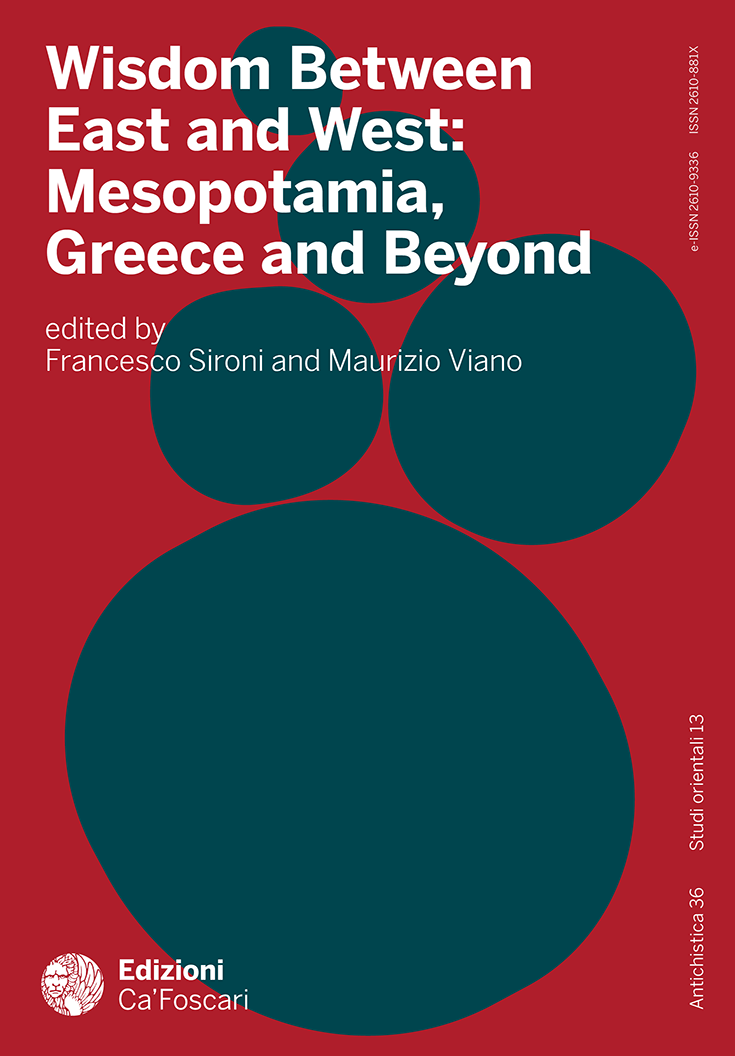Collana |
Antichistica
Miscellanea | Wisdom Between East and West: Mesopotamia, Greece and Beyond
Capitolo | An Epistemological Perspective on the Mesopotamian Wisdom Tradition
An Epistemological Perspective on the Mesopotamian Wisdom Tradition
Abstract
There are two major strands in the Mesopotamian wisdom tradition. A popular one (proverbs and folk stories) reflects what we may call a zero degree reflection on the human condition, whereas a scribal tradition hails from a more detached intellectual effort at defining this human condition especially in its moments of greater fragility. Both may be seen as a form of knowledge: reaching for a realistic assessment of what we know about ourselves. As such, it has an epistemic dimension, one that we can appreciate all the more if we compare it with myths on the one hand, which may be seen epistemologically as an idealization of nature, and epics on the other, which may be seen as an idealization of the human past. The paper develops in some detail this contrast between idealization and realism, with reference to specific texts that illuminate this shared, if differently oriented, epistemic effort.
Presentato: 07 Novembre 2023 | Accettato: 27 Marzo 2024 | Pubblicato 09 Luglio 2024 | Lingua: en
Keywords Wisdom • Myth • Mesopotamia • Epics • Epistemology
Copyright © 2024 Giorgio Buccellati. This is an open-access work distributed under the terms of the Creative Commons Attribution License (CC BY). The use, distribution or reproduction is permitted, provided that the original author(s) and the copyright owner(s) are credited and that the original publication is cited, in accordance with accepted academic practice. The license allows for commercial use. No use, distribution or reproduction is permitted which does not comply with these terms.
Permalink http://doi.org/10.30687/978-88-6969-776-0/001





